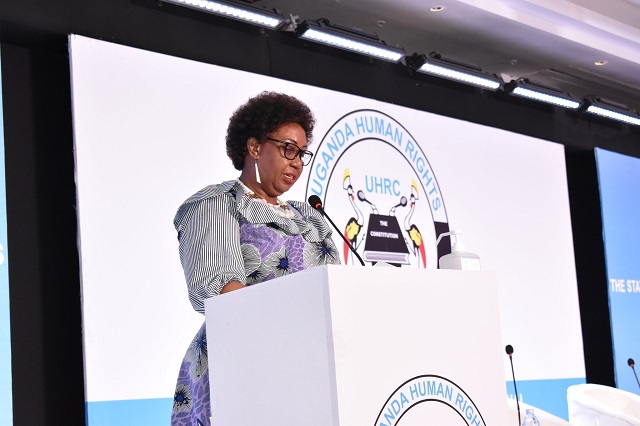
Kampala, Uganda | THE INDEPENDENT | Human rights promoters and officers from various government entities under the Justice, Law and Order sector have disagreed over calls to amend the Human Rights Enforcement Act.
This law which was enacted in 2019, provided for the procedure of enforcing rights under chapter four of the Constitution as well as the enforcement of rights and freedoms by courts of law. But even in its infancy, judicial officers want the law amended on grounds that it has several contradicting provisions.
The matter came up during the symposium on Appraising the Operationability of the Human Rights Enforcement Act, 2019 which was attended by officials from the Uganda Human Rights Commission, The United Nations, Uganda Law Society, Uganda Police Force, Uganda Prisons Service, The Directorate of Public Prosecutions and the Judiciary. The symposium was held in Entebbe on Thursday.
During the discussions, High Court Judge Phillip Odoi noted that Parliament has to amend the law to address contradictory provisions within. One of the contradictions he cited was the timelines for determining human rights cases and appeals and the forum for filing private prosecutions.
While the Rules Committee of the Judiciary provided that private prosecutions should be filed in the Constitutional Court, the Act puts the jurisdiction before the Magistrates and the High Court. The Act also provides that the courts should determine the matters before them within 90-days from the date of filing.
But Odoi says that the judiciary has few judges to ensure that the High Court determines matters within the stipulated timeframe. He adds that although the Act provides for nullifying a trial when a suspect notifies the court that his or her human rights have been violated, these are two issues that must be handled separately.
Similarly, the spokesperson of the Uganda Prisons Service Frank Baine faulted parliament for not consulting before enacting a law with such visible contradictions. He cited Section 15, where a person who has reason to believe that another is being unreasonably detained may petition the High Court for unconditional release, saying prisons officers cannot determine which inmates qualify for unconditional release.
However, David Kabanda, the Executive Director of the Centre for Food and Adequate Living Rights and lawyer Luyimbazi Nalukoola opposed the proposed amendments and argued that the law needs to be tested before it can be amended.
Robert Kirunda, another lawyer observed that the law is very significant in ensuring access to justice for ordinary citizens and that public officers must know that they can now be sued in their individual capacity for violating human rights.
Robert Kotchani, the country representative Office of the High Commissioner United Nations Human Rights noted that the Act is the most progressive since the promulgation of the 1995 Constitution, yet human rights violations continue due to the lack of political will.
The chairperson of the Uganda Human Rights Commission-UHRC Mariam Wangadya says the Act was long overdue because there were no procedures to enforce human rights since 1995.
*****
URN
 The Independent Uganda: You get the Truth we Pay the Price
The Independent Uganda: You get the Truth we Pay the Price



